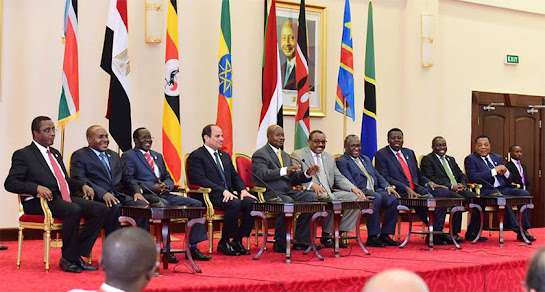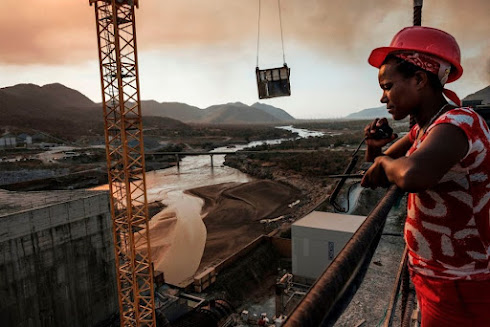Cooperation in Drylands: The Nile Basin Initiative
The Nile basin is particularly vulnerable to conflict due to the seasonal variability and inconsistent availability of surface water resources, especially in dryland areas in downstream riparians. As such, communities are used to imaginative water management interventions, hence the concentration of significant dam and irrigation schemes. This also encourages knowledge exchange between riparian states.
This blog has hinted that transboundary agreements could go some way to improve management and sustainability of water flows in the Nile Basin, of course this is easier said than done. The World Bank concludes that lack of cooperation over management of the Nile has been exacerbated by challenges that already beset the region, further complicate by its the transboundary nature.
I will concede the blog's talk of water wars and political squabbling takes away from the immense efforts riparian states have taken to cooperate, in spite of the significant challenges they share in regard to water management. As such, I will be shedding some light on the Nile Basin Initiative (NBI), a significant step change for states seeking more positive interactions.
From the outset the NBI represents the most ambitious and comprehensive management plan ever attempted for sustainable development of a transboundary river basin (that covers 10% of the African continent)! The NBI is focused towards joint action and mutual gain, incorporating 10 Nile Basin countries (including Ethiopia, Sudan and Egypt), acting as an enabling forum for political mediation and knowledge sharing across in regard to managing the watercourse.
The institution enjoys strong donor support to support its projects from major development institutions including the World Bank and African Development Bank. The NBI is particularly interested in improving data collection and institutional capacity, aiming to improve regional understanding of the river basin. One of its flagship projects is the Kagera River Basin Management Project, which supports the installation and refurbishment of hydrology centres across the Kagera Basin to improve reporting of hydrological data. A 'basin wide', transboundary approach is central to its methodology.
While the NBI is a step change for transboundary Nile Basin cooperation, it is far from perfect. Despite focus on upskilling institutions in Nile Basin Countries, NBI projects do not incorporate local knowledge from indigenous people who have operated in the region for generations, with long-standing sustainable practices in sectors like agriculture. Local knowledge can be perfect for upskilling in the basin, yet bottom up approaches are not explored as much as state-led scientific approaches.
There is no doubt governments in the region currently lack the capacity to achieve their aims without external help, hence support from development banks and due to the sheer size of the basin, the workforce and projects are spread thin. Despite its rhetoric of cooperation the NBI siloed from other water management institutions operating on the continent, significantly the Lake Victoria Basin Commission and World Commission on Dams.
Egyptian attitudes to the Nile Water Agreement, 1929 (set up by the colonial British, giving Egypt and Sudan powers to veto any development on the Nile) also present a hurdle, with upstream riparians like Uganda and Tanzania retaliating with territorial attitudes to water management. The preferential treatment Egypt has enjoyed until this point simply is not sustainable when considering development needs of other riparians, who are largely in agreement that they should not need permission from Egypt to develop on the Nile, with Ethiopia ploughing on with the GERD. Both Sudan and Egypt have refused to participate in NBI activities as a result, with many summits being dominated by efforts to appease them, as was the case in the 2017 summit, with no agreement met.
While much work is to be done, there is still potential for greater integrated water resource management. The fact the NBI even exists and is able to draw riparians together is of greater benefit than if it was absent.





Comments
Post a Comment